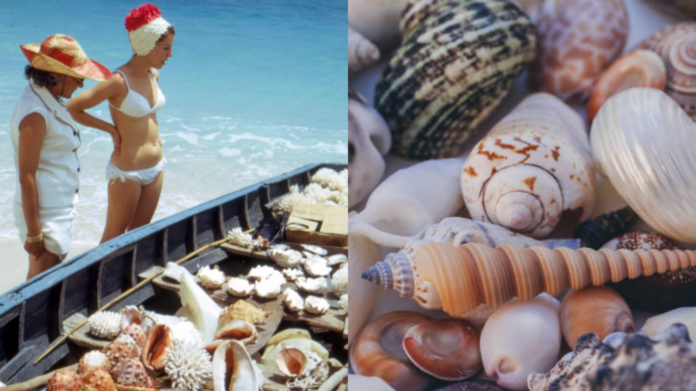On my arrival to the archipelago to cover information relating to the effects of climate change, the stretches of soft sand along the Indian Ocean have seemed lacking. When I went to Mauritius as a toddler on family holidays, I would see much of seashells on the waters. The collection of many different seashells that my father amassed as a teenager here would not be possible now. This is not surprising for 14-year-old climate change activist Anesh Mungur, who narrated he had scarcely observed any seashells in his life.
“I think it’s really sad that the shells are vanishing.

Anesh Mungur
Teenage climate change activist.
“I feel that the island is really suffering from the consequences of climate change and more needs to be done to protect the island before it’s too late.” Shells have always played an important role in Mauritian culture – the Monetaria annulus, commonly known as gold ring cowrie, is a gift of love or luck. The Monetaria moneta also used to be very common in Mauritius – it is known at the money cowrie as thousands of years ago it was used as a form of currency in some parts of Africa.
Warming waters
Oceanographer Vassen Kauppaymuthoo says seashells on the island have decreased in number by 60% over the last three decades.
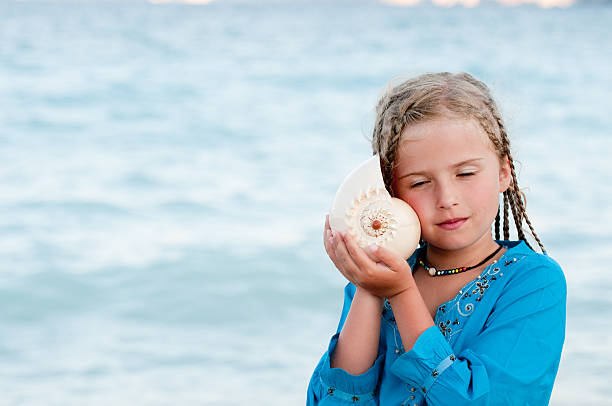
He blames climate change and activities such as overfishing, tourism and pollution from wastewater and boats. Mauritius is one of the most vulnerable countries in the world when it comes to climate change. It suffers from rising sea levels, droughts and cyclones.
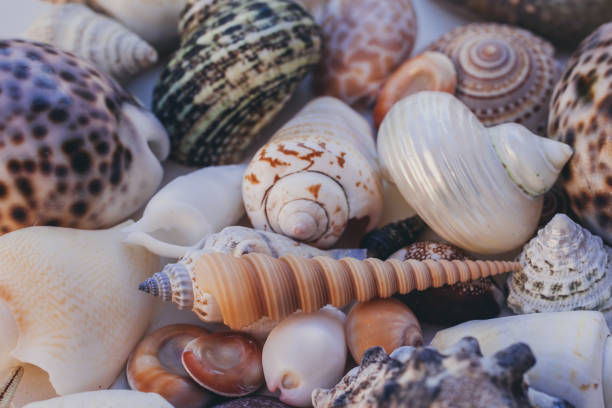
Increasing temperature of the water has affected much of the ecosystem, in addition to seashells where molluscs reside, while a rise in carbon dioxide in the atmosphere “results to acidification of the sea which in turn causes seashells to become smaller”, says Mr Kauppaymuthoo.
“This subsequently causes them to have problems in producing their shells.”
It all has a knock-on effect – and devastating consequences for coral reefs and the ecosystem around the island. “When you don’t have molluscs, you don’t have the predator and then you have other organisms which start to proliferate and it causes an imbalance of the ecosystem in the tropical island and around the world.” Small fish and octopuses also use the shells for shelter and protection and many birds also use parts of seashells to build their nests. Anesh, who is part of the Fridays For Future Mauritius movement, says more also needs to be done to stop environmental disasters, like the huge oil spill that hit the island in 2020.
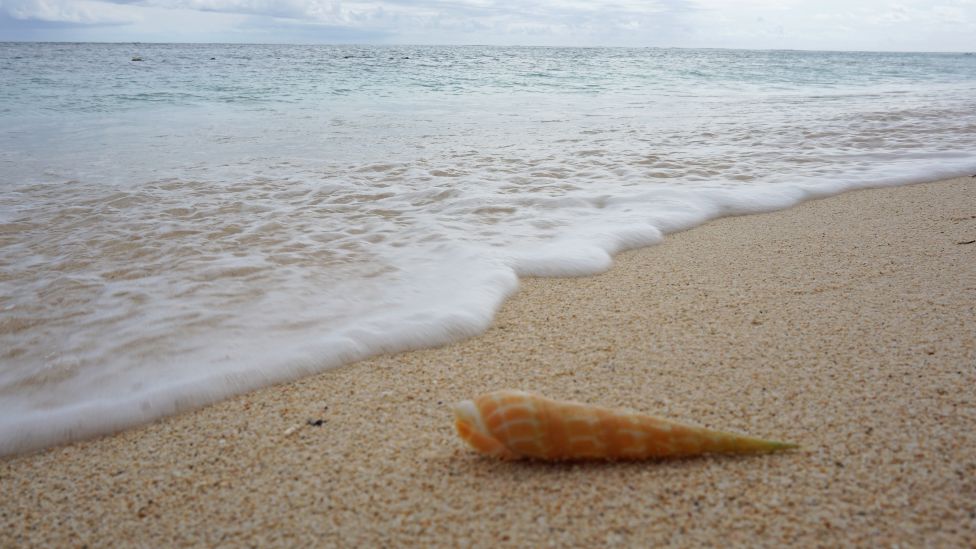
About 1,000 tonnes of fuel oil from the Japanese-owned MV Wakashio leaked into the ocean after it ran aground on a coral reef, causing Mauritius’ worst ecological disaster. “Our marine environment was very much affected including corals, molluscs and other organisms and the island is still suffering from what happened.” It damaged about 300m (1,000ft) of coral reef and killed many fish – affecting the livelihoods of fishermen. For the teenager it is about creating awareness around the world.
“I don’t think many people know the importance of seashells and how much they are being affected.”
Crackdown on collectors
Mr Kauppaymuthoo also blames shell collectors – or beachcombers – for the decline of seashells as they are often harvested with the living animals still inside them.
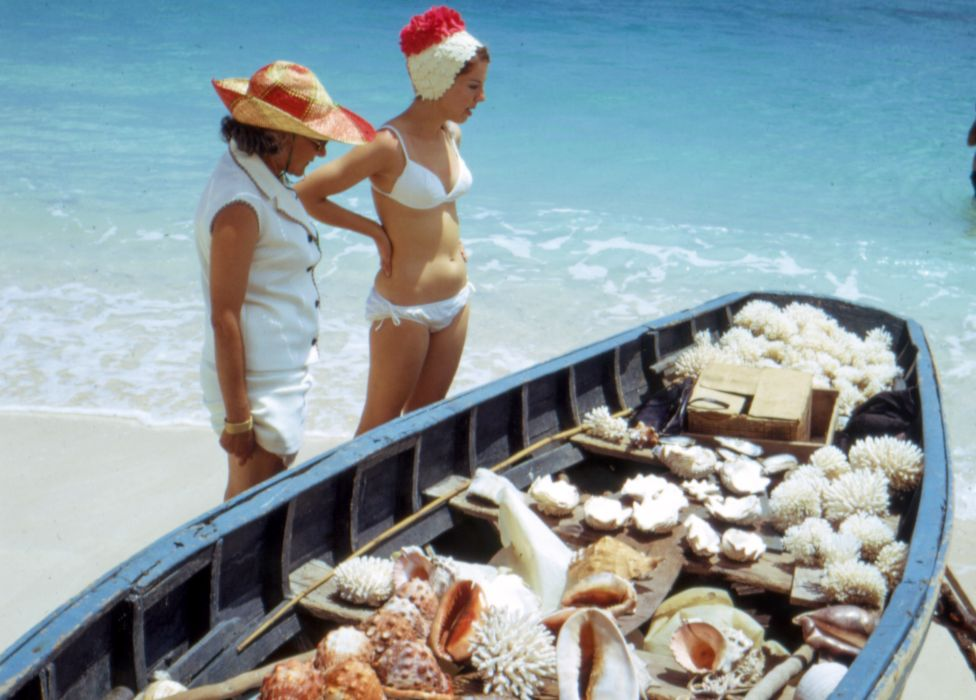
The authorities in the government try to prevent people collecting up shells – and the sale of souvenirs to tourists – with two laws brought in over the last 15 years. Mr Kauppaymuthoo says only 10 seashells can now be legally picked up as a keepsake – from beaches where low and high tide marks can be seen. The government is trying to stop people picking up shells – and the sale of souvenirs to tourists – with two laws brought in over the last 15 years. Mr Kauppaymuthoo says only 10 seashells can now be legally picked up as a keepsake – from beaches where low and high tide marks can be seen.
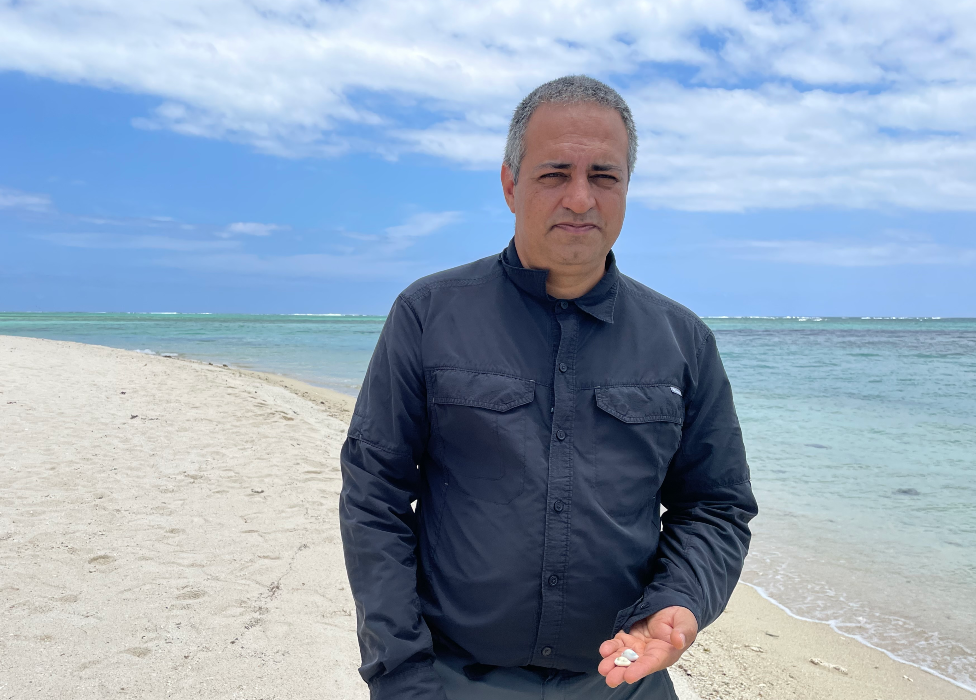
Vassen Kauppaymuthoo
Oceanographer
But while shell picking may be restricted – and it is illegal to export them now – it is difficult to stop people popping the pretty souvenirs into their bags.
“Don’t pick them up from the beaches,” Mr Kauppaymuthoo urges, adding that seashells also prevent coastal erosion.
The more shells there are, the harder it becomes for winds, waves and water currents to move the shoreline sediment around. His advice for those wanting to remember their tropical holiday?
“Look at the shells, take photos of them – that way you can have fond memories and also knowing that you are saving them too.”






